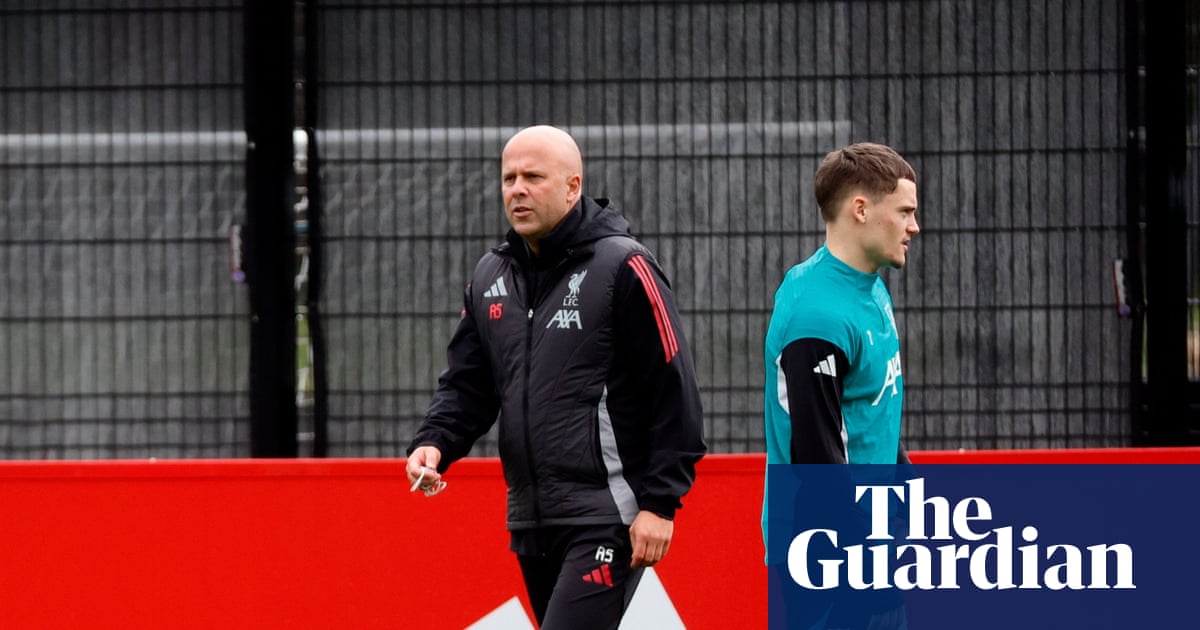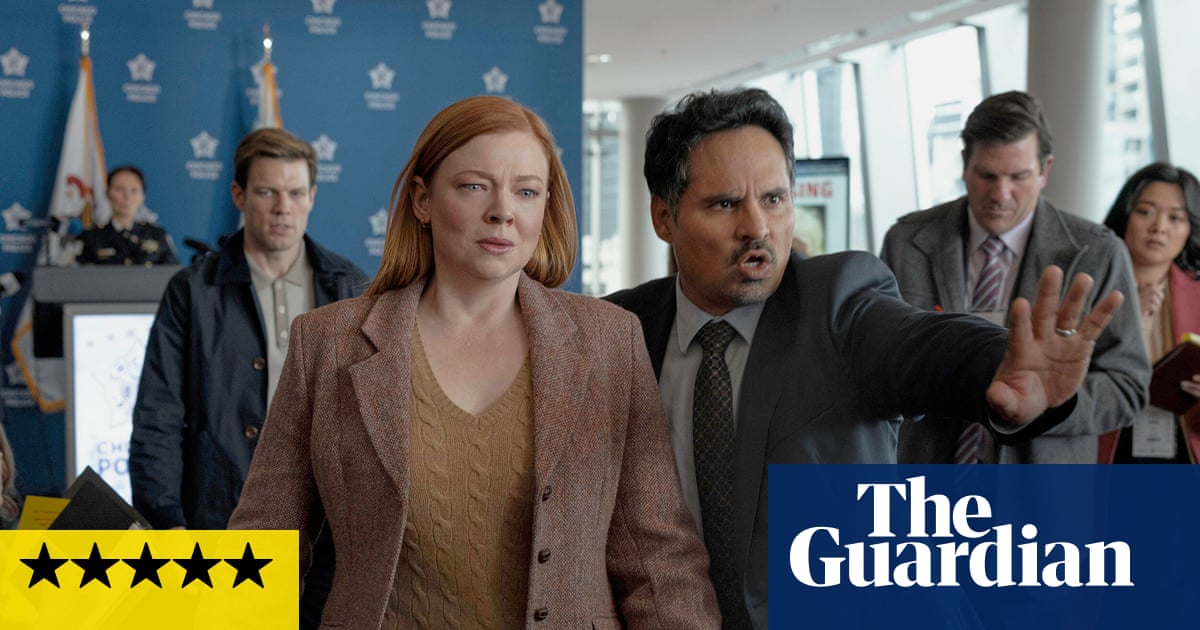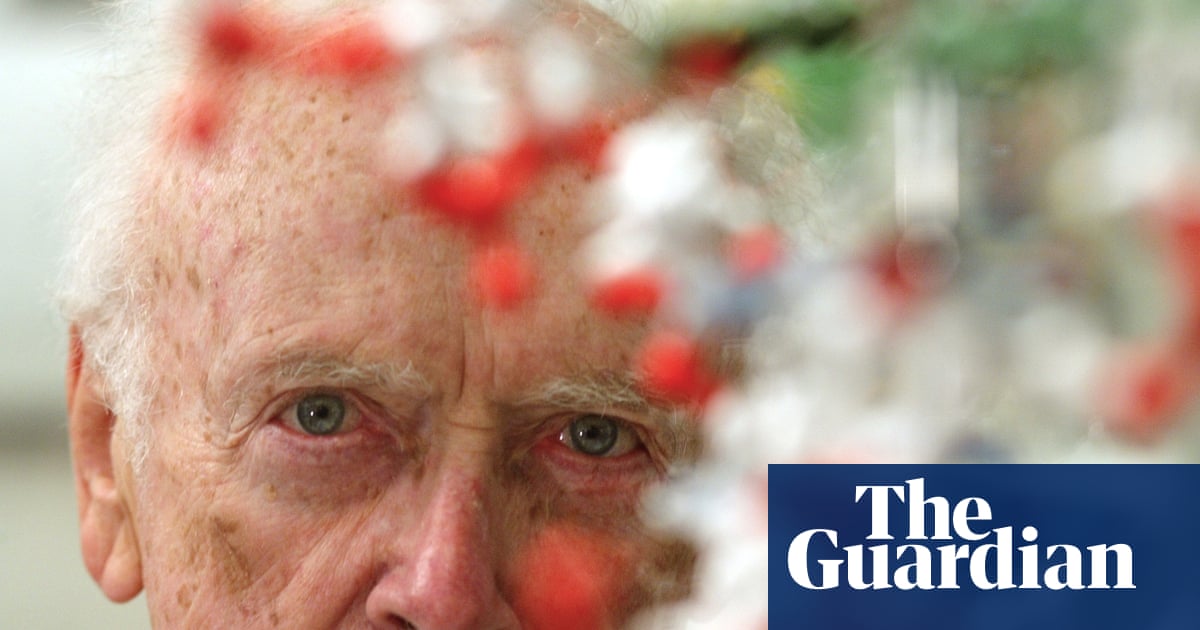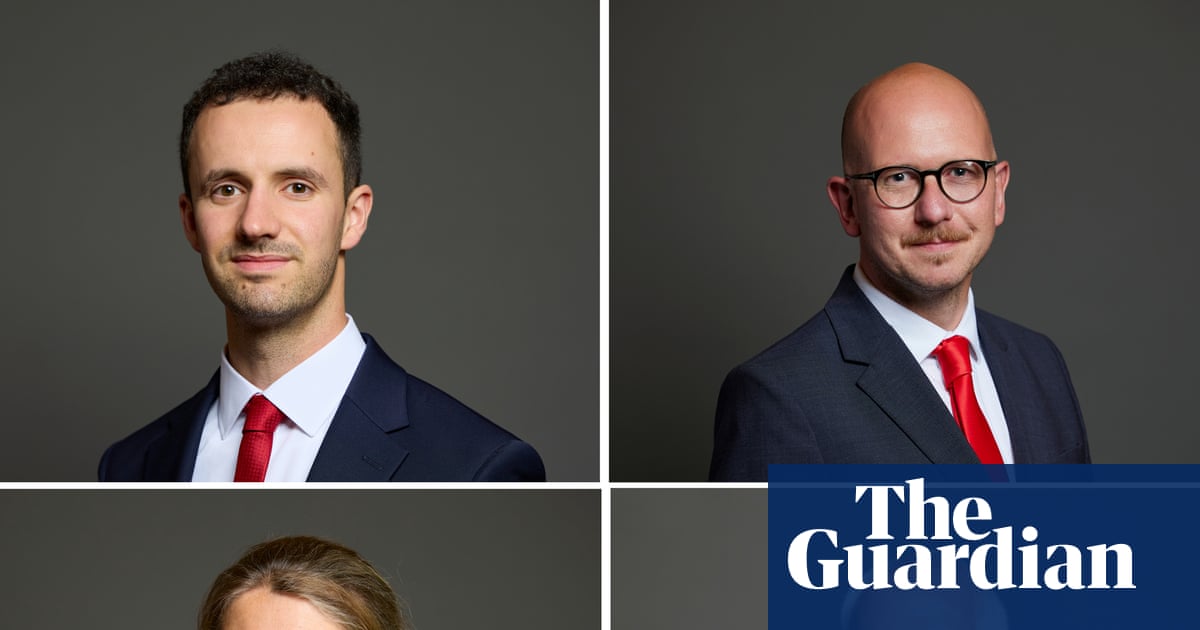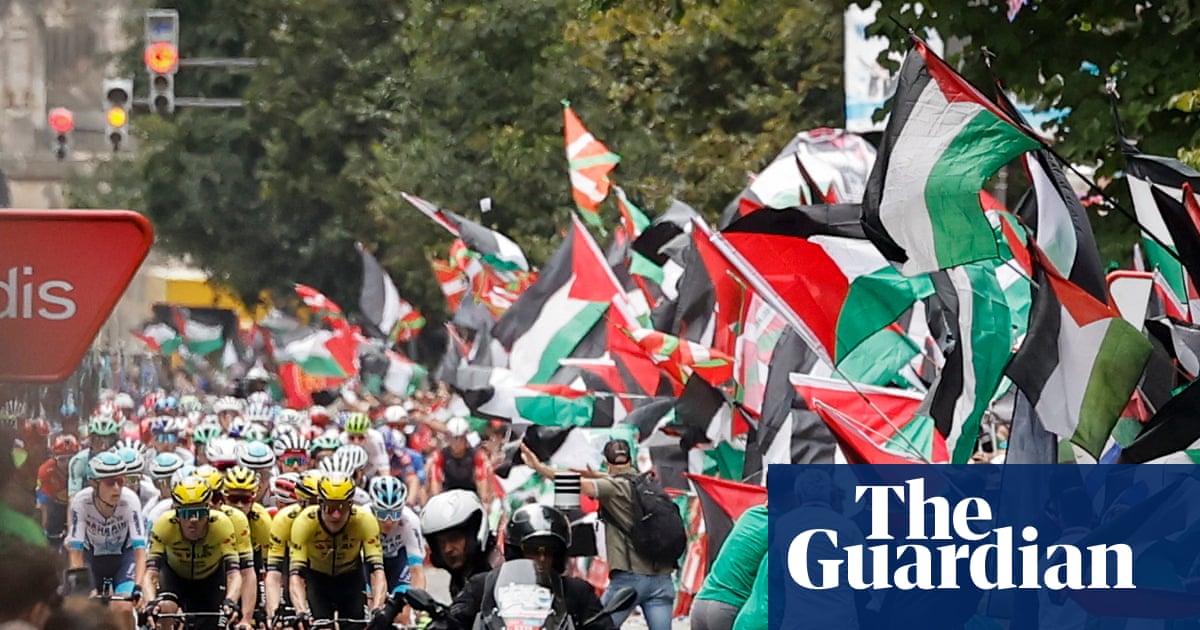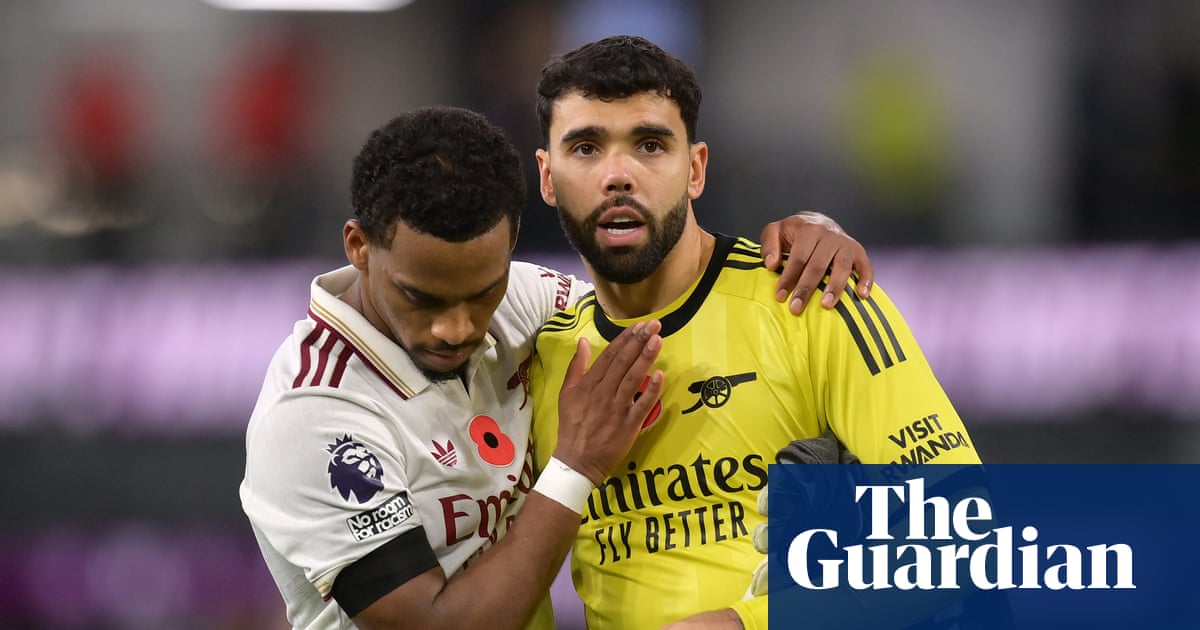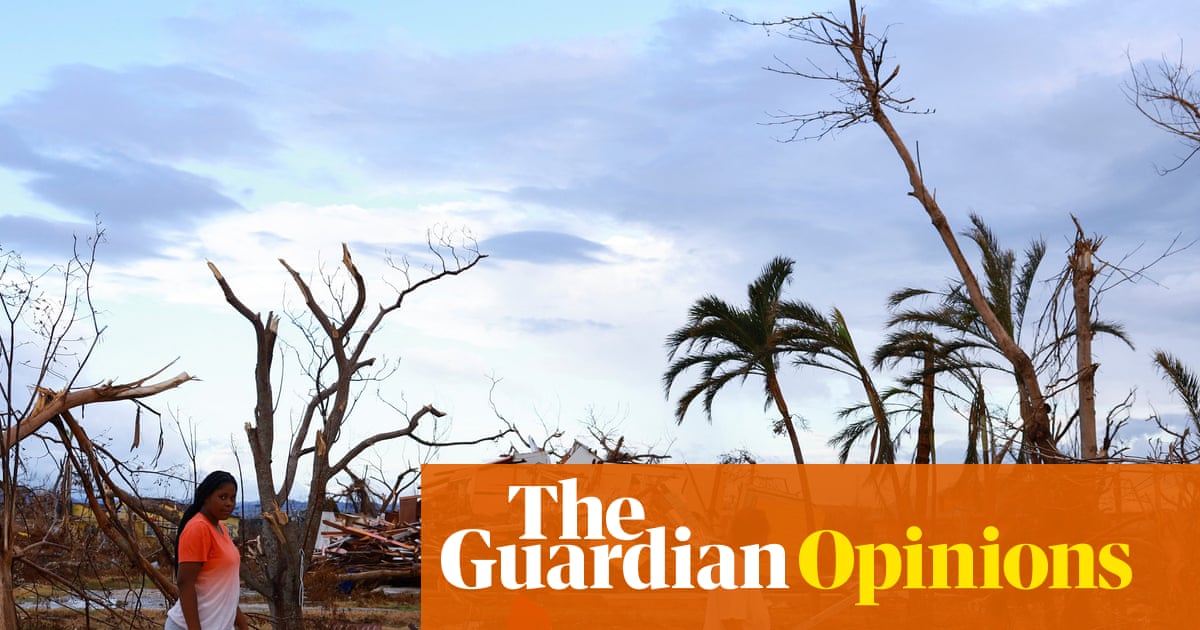In Gaza, being a helpful, loving child can be a death sentence. Heba al-Ghussain’s nine-year-old son, Karam, was killed by an Israeli airstrike because he went to fetch water for the family, and her 10-year-old daughter, Lulu, was killed because she went to give Karam a hand.
The siblings were waiting beside a water distribution station, holding jerry cans and buckets, when it was bombed last Sunday, killing six children and four adults and injuring 19 others, mostly children.
Both Lulu and Karam died instantly, torn apart by the force of the blast and so disfigured that their father prevented Heba from seeing their bodies.
“They didn’t allow me to say goodbye or even look at them one last time,” she said. “One of my brothers hugged me, trying to block the scene from me as he cried and tried to comfort me. After that, I don’t remember anything. I lost touch with reality.”
Lulu’s real name was Lana but her parents rarely used it because her nickname, which means pearl, captured the gentle shine she brought to family life. “She had such a joyful personality, and a heart full of kindness,” Heba said.
Karam was smart, always top of his class until Israeli attacks shut down Gaza’s schools, generous and mature beyond his years. His dad, Ashraf al-Ghussain, called him “abu sharik” or “my partner”, because he seemed “like a man in spirit”.
But he was also enough of a child to be obsessed by a remote-controlled car that he begged his mother to buy. She regrets telling him they needed to save money for food. “I wish I had spent everything I had to buy it for him so he could have played with it before he died.”
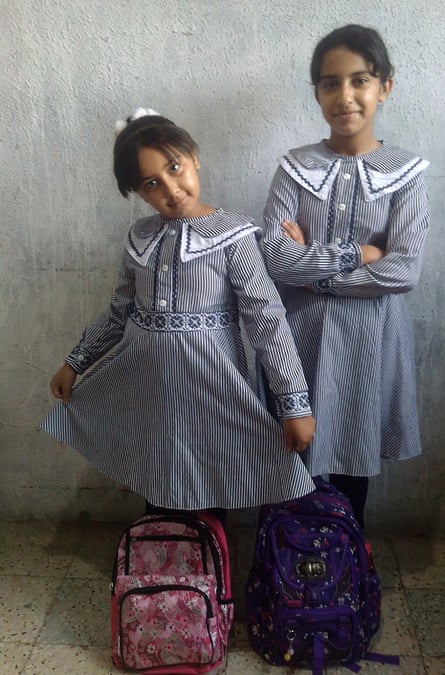
Both children also dreamed of the day Israel would lift its blockade of Gaza, so they could taste chocolate, instant noodles and their mum’s best dishes. For Lulu that was the Palestinian chicken dish musakhan, for Karam, shawarma. “They had all kinds of food plans for me to prepare,” Heba said.
Israel imposed a total siege for 11 weeks starting in March that brought Gaza to the brink of famine, and the very limited food, fuel and medical supplies allowed in since May have not relieved extreme hunger.
Unprecedented malnutrition is killing children, and preventing injured people recovering, a British doctor working there said this week.
Trying to get food has been a deadly gamble for months, with more than 800 people killed since late May in near daily attacks by Israeli soldiers using weapons including tank shells and navy cannon to target desperate crowds near food distribution points.
Trying to get clean water is also a struggle. Nearly two years of Israeli attacks have destroyed water treatment plants and pipe networks. In June Unicef warned that Gaza faces a human-made drought and that without fuel to operate remaining stations children could start dying of thirst.
But until Sunday, there had not been any mass killings of people trying to collect water. The al-Ghussains sent their children to collect supplies for the family because they thought it was less dangerous than searching for food.
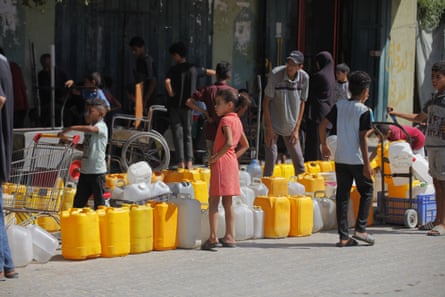
Aid groups brought water in trucks to fill tanks at a water distribution station just a few streets away from the school where the family sought shelter after their own home was bombed. Karam would wait there in the sweltering heat for his turn at taps that often ran dry.
“I had no choice but to send them,” Heba said. “Many times, my son would go and wait for his turn, sometimes for an hour, only to end up with nothing because the water would run out before it reached everyone.”
When he did get water, it was only 20 litres, very little for a family of seven but a heavy weight for a young boy. “Karam was only nine years old and braver than dozens of men. He carried it without tiring or complaining.”
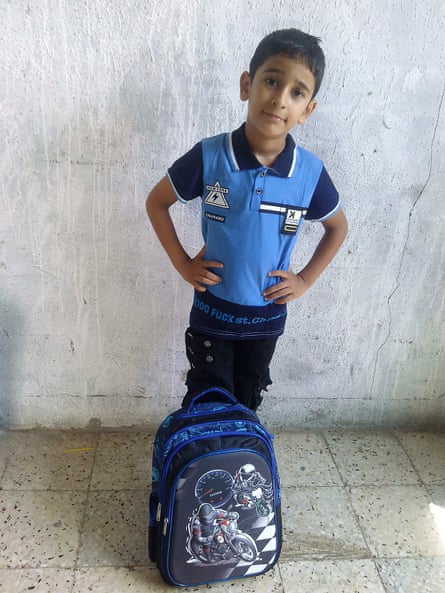
The long queues meant that Heba was not too worried when she heard the water station was hit. Her son left home not long before the bombing, so she assumed he would still have been at the back of a waiting crowd, some distance from the blast.
As it turned out the queue was relatively small when he arrived, a stroke of fatally bad luck that probably delighted Karam in his last few minutes. It meant that when the bomb hit, he and his sister were right beside water station.
“When Lulu woke up, I told her to go help her brother carry the water containers. It was as if the missile was waiting for her to arrive to strike that place,” Heba said.
Ali Abu Zaid, 36, was one of the first on the scene, rushing to help survivors. As the dust and smoke cleared they revealed a horrific tableau.
“Each child was holding a water bucket, lying dead in place, covered in their own blood. The shrapnel had torn through their small bodies and disfigured their faces. The smell of gunpowder filled the area,” he said.
People started loading the dead and injured on to donkey carts, as medical teams were slow to arrive, but there was nothing doctors could do for most of the victims.
“Even if the ambulances had got there sooner, it wouldn’t have made a difference. There was no saving anyone, these were lifeless bodies, completely shattered.”
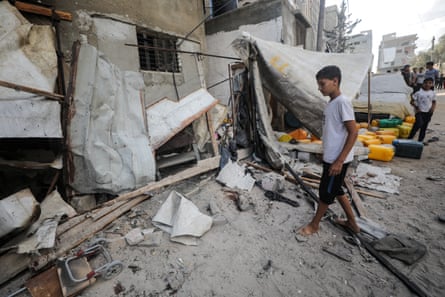
Ashraf raced to look for his children as soon as he heard the blast, but arrived after their bodies had been taken away to find only blood-stained water containers scattered on the street, and a terrifying silence.
So he headed to hospital to continue the search, where he found their battered bodies laid out on the floor, and collapsed over them in grief. He married in his 30s, late for Gaza, and when his children arrived they became his world. Karam and Lulu’s brutal deaths have shattered him.
“When I saw them like that, I felt as if my heart was being stabbed with knives,” he said. “I’m still in shock. I’ve become constantly afraid of losing the rest of my family and being left alone. I feel as if I’m going to lose my mind.”

Heba also went to look for Lulu and Karam at the water station but then headed back to the shelter, hoping to find them waiting with their dad. Perhaps she had learned a kind of grim optimism from previous brushes with death.
The siblings had been rescued from the rubble of their home when an airstrike brought it down on top of them earlier in the war, and survived injuries after another bomb hit nearby. That streak would not last. “They survived twice, but not the third time,” Heba said.
Word of the children’s fate had reached the school, but even in Gaza, where no family has escaped tragedy, the scale of Heba’s loss was shocking.
“The news of their martyrdom was already spreading, but no one told me,” she said. “No one dared to deliver such terrible news.” Instead they encouraged her to go look for them among the injured in al-Awda hospital.
There she found her husband, and the shattered bodies of their beloved son and daughter, so full of life just a couple of hours earlier.
Israel’s military blamed the strike on a “malfunction” that caused a bomb targeting a militant to fall short and hit the children, and said it was examining the incident.

Ashraf questioned this. “They have the most advanced technology and know exactly where the missile will fall and who the target is. How could this be a mistake? A ‘mistake’ that killed both of my children!”
The family couldn’t afford a burial plot for the children, so they interred them beside Heba’s father. They worry they may have to reopen the grave again for the youngest of their three surviving children if aid to civilians does not increase. At 18 months, Ghina is malnourished and has skin rashes because the family cannot afford nappies and don’t have enough water to wash her.
“We sleep hungry and wake up hungry, and thirsty, too, with the desalination stations barely operating,” Heba said. “The entire world sees everything, yet they close their eyes as if they don’t.”

 3 months ago
87
3 months ago
87
